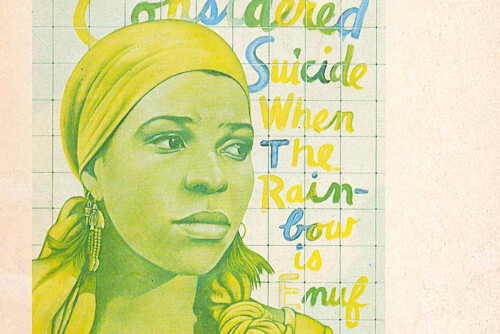[T]he internet is characteristically “postmodern” in the way that it opens up limitless opportunities for communication, writing and thought, and in the way that it galvanizes the proliferation of text freed from the mastery of authors . . . it makes all information the ownership of everyone. 1
What’s a blog?
Blogs are everywhere: they’ve become the new darling of US and international politics and are quickly becoming a new form of media. Hillary Clinton has experimented with blogging 2 and hired a blogging consultant, and the President of Iran recently announced that he would be launching a blog. 3 Newspapers and other media outlets are creating new blogs at record pace. The new and creative ways blogs are being used for political activism have shown that they can make waves in electoral politics: The New York Times credited the power of blogging as a contributing factor in Ned Lamont’s victory over Joe Lieberman in Connecticut’s Democratic primary. Lamont had hired a staffer to coordinate blogging activities. 4 National and grassroots organizations have started blogs and in so doing are paving the way for online “netroots” organizing. Just last year, an antichoice bill in Virginia was withdrawn thanks to the quick response of pro-choice bloggers. 5 But despite blogs’ prevalence and increasing relevance both in and outside of the political realm, many still don’t seem to know what, exactly, makes a blog a blog.
The term blog, short for Weblog, is a Web site maintained by one or more persons who post information in “log” format, most often time-stamped in reverse chronological order. 6 Unique to blogs is a level of interactivity not present on most Web sites. Readers can leave comments and partake in a conversation with other readers and the bloggers themselves. Blogs also tend to be timelier than other Web sites in that they’re updated frequently—generally several times a day. If you’re not familiar with the “blogosphere,” you may find this issue’s Recommended Reading section and Wikipedia’s list of blogging terms helpful to keep on hand as references while you browse this edition of The Scholar & Feminist Online.
New blogs are popping up everyday. Recent estimates by The Guardian UK put the number of feminist blogs at 240,000, and the number of active blogs worldwide at 4 million, although some estimates are much higher. 7 The blog search engine Technorati says that it tracks more than 50 million blogs worldwide. Despite these numbers, little has been written on the feminist implications of the recent blogging phenomenon, to the detriment of the feminist movement. Further, while women are currently creating blogs at nearly the same rate as men, 8 “mainstream” or “A-list” blogs (as defined by traffic rank and media and political attention) do not often link to blogs run by women, particularly when it comes to the political blogosphere, an indication that the gender hierarchy is being reproduced in the blogosphere. 9 In fact, a recent survey of “important blogs” (importance being measured by how many sites—other blogs and commercial news sites—link to the blog) by the Web site Blogstreet indicated that not one of the “top 10 most important weblogs” was maintained by a woman. 10 Addressing this point in an essay on the importance of blogging to progressive politics, Lakshmi Chaudhry rightly asks: “If blogs derive their credibility from being the ‘voice of the people,’ surely we should be concerned about which opinions get attention over others . . . What kind of democratic consensus does the blogosphere reflect when the people participating in it are most likely to be white, well-educated men?” 11 Following this argument, this issue not only explores the act of blogging as a way of subverting media power relations and an exciting new way to think about feminist activism, but it also examines the recurring and important questions: Where are the women bloggers? Who are they? Or more importantly, why can’t (or won’t) people find them?
- Desiree Lewis, “African Gender Research and Postcoloniality: Legacies and Challenges,” Council for the Development of Social Science Research in Africa, Gender Series, Volume 1 (November 2004), www.codesria.org/links/conferences/gender/LEWIS.pdf. [↑]
- Clinton’s blog can be found at http://health.yahoo.com/blog-for-hope/clinton/.[↑]
- See the August 14, 2006 report on Ahmadinehad’s blog at the BBC News Web site, http://news.bbc.co.uk/2/hi/middle_east/4790005.stm.[↑]
- Ryan Lizza, “The YouTube Election,” The New York Times, August 20, 2006.[↑]
- “Update: Blogs Force Cosgrove to Withdraw Disturbing Miscarriage Bill,” posted to Feministing.com, January 11, 2005, http://feministing.com/archives/002440.html.[↑]
- V. Tobias, “Blog This! An Introduction to Blogs, Blogging, and the Feminist Blogosphere,” Feminist Collections 26 (2005), nos. 2-3, http://www.library.wisc.edu/libraries/WomensStudies/fc/fcblogs1.htm.[↑]
- K. Cochrane, “The Third Wave – At a Computer Near You,” The Guardian Unlimited, March 31, 2006, http://technology.guardian.co.uk/news/story/0,,1743734,00.html (accessed June 5, 2006); see our blogroll for a small sample of some of our favorites.[↑]
- Pew Internet & American Life Project, “New Data on Blogs and Blogging,” press release posted to pewinternet.org, May 2, 2005, http://www.pewinternet.org/
press_release.asp?r=104 (accessed June 7, 2006).[↑] - S. C. Herring et al., “Women and Children Last: The Discursive Construction of Weblogs, in Into the Blogoshpere, ed. L. Gurak et al. (University of Minnesota: 2004), http://blog.lib.umn.edu/blogosphere/women_and_children_pf.html (accessed June 5, 2006).[↑]
- C. Ratliff, “Whose Voices Get Heard? Gender Politics in the Blogosphere,” posted to CultureCat, March 25, 2004, http://culturecat.net/node/303.[↑]
- L. Chaudhry, “Can Blogs Revolutionize Progressive Politics?,” In These Times, February 6, 2006, http://www.inthesetimes.com/site/main/article/2485/ (accessed June 5, 2006). [↑]



